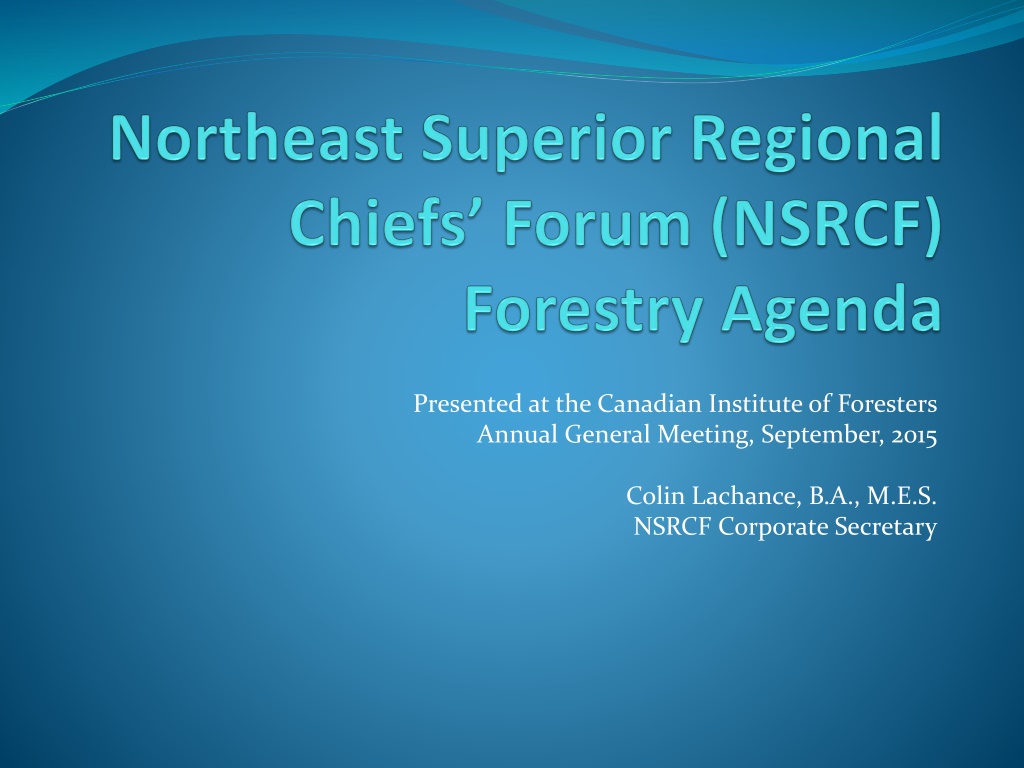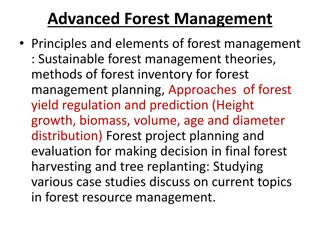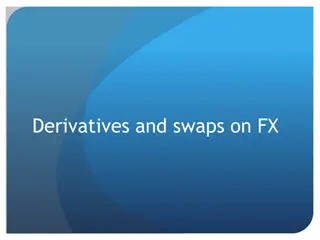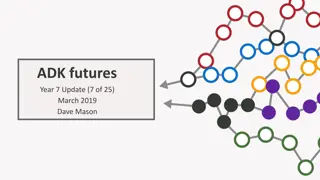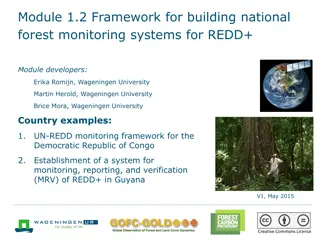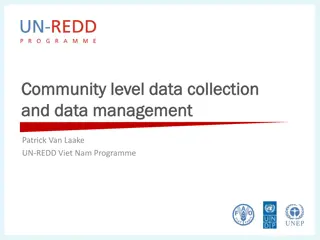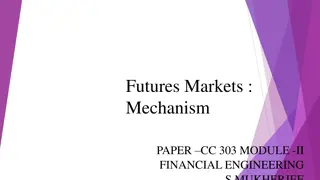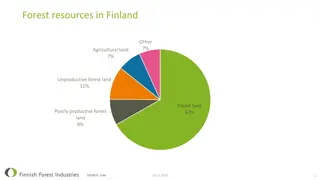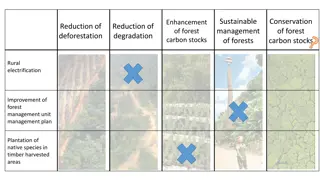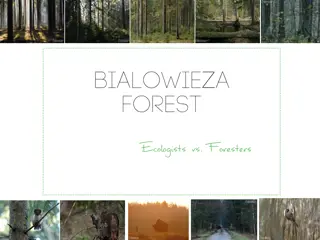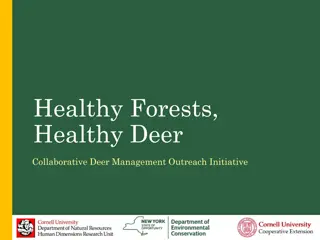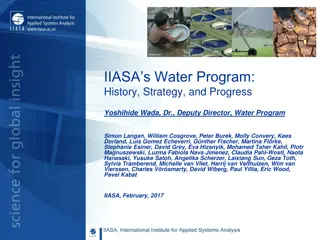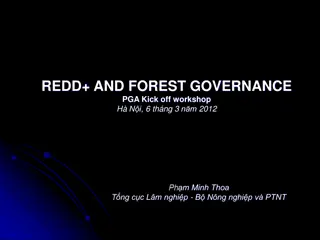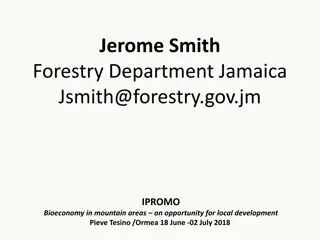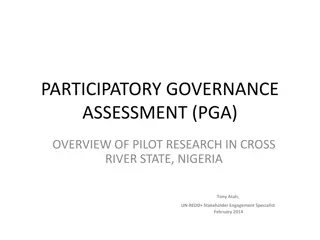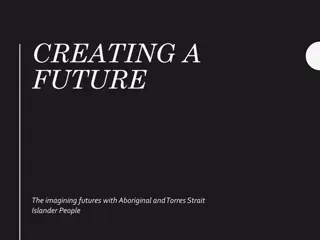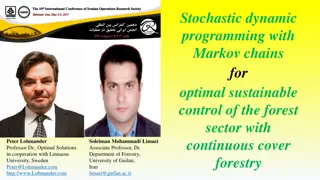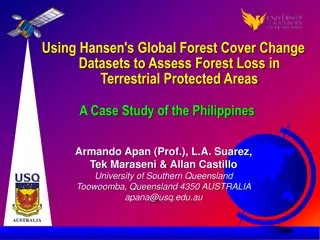Transforming Forest Governance for Sustainable Futures
Colin Lachance presented at the Canadian Institute of Foresters' Annual General Meeting in September 2015, advocating a principled approach emphasizing the return of First Nations to stewardship roles, equitable sharing of forest economic benefits, and embracing reconciliation. Supporting global trends such as social responsibility standards and evolving forestry practices were highlighted. A comprehensive approach to governance, fiscal management, and economic initiatives was discussed, emphasizing collaboration and adaptability. The NSRCF's transformative processes and commitment to engaging stakeholders were central to the presentation.
Download Presentation

Please find below an Image/Link to download the presentation.
The content on the website is provided AS IS for your information and personal use only. It may not be sold, licensed, or shared on other websites without obtaining consent from the author. Download presentation by click this link. If you encounter any issues during the download, it is possible that the publisher has removed the file from their server.
E N D
Presentation Transcript
Presented at the Canadian Institute of Foresters Annual General Meeting, September, 2015 Colin Lachance, B.A., M.E.S. NSRCF Corporate Secretary
Principled Approach First Nations need to return to their traditional roles as stewards of the land First Nations need to share more equitably in forest economic benefits Canada needs to embrace reconciliation Forest tenure modernization provides opportunity
Supporting Global Trends 1984 Megatrends predictions New ISO social responsibility standards New FSC forest certification standards Evolving community forestry best practices Twenty years of reconciliation-based Court rulings Timeless Eighth Fire convergence prophecies Conclusion: The NSRCF transformative process is behind the curve, not ahead of it!
Comprehensive Approach Governance: NS-ESFL to start Fiscal: Forestry RRS Pilot to start Economic: Condition # 34 Agenda Environmental: Guardianship Agenda Social: Learning Institute Cultural: Healing and Wellness Agenda Conclusion: We are only as strong as our weakest link!
Governance: NS-ESFL Started with a FN-municipal community approach Moved to a FN-industry sustainability approach Then gained government-to-government traction OMNRF commitment letter game changer All process stakeholders are now engaged Conclusion: An adaptive management approach works because it allows for shifts to be made on the fly!
Fiscal: Resource Revenue Sharing NSRCF-Ontario two year pilot project Evaluation methodology jointly developed Big breakthrough circular (holistic) representation of evaluation criteria led to a common understanding Conclusion: Convergence is not about blending two world views but about looking at the same world from different perspectives!
NSRCF Economic Agenda Started with OMNRF Condition #34 petition Moved to a business-to-business agenda with industry New entry focus, no displacement of status quo Commitment wavered once wood fibre allocated NSRCF then created a non-political business model Economic agenda now moving forward rapidly Conclusion: No room for politics in merit based decision-making
NSRCF Ecological Agenda Conservation Economy branding underway Aboriginal values mapping exercise completed ABIR cross-cultural methodology developed EFRI cross-cultural methodology developed FSC FPIC pilot project underway Strategic environmental assessment being considered
NSRCF Cultural Agenda NSRCF guided by an Elders Council Guardianship agenda reconnects Elders with youth Commitment for a healing lodge in each community Several cases of spiritual intervention that improved government decision-making
NSRCF Social Agenda Comprehensive community planning underway Tied to a regional planning process Creating a regional development corporation Non-political, strategic, collaborative focus Municipalities still invited to the table
Conclusions Transformative change processes are not easy People are fearful of change even when it makes sense Adaptive management approach promotes continual improvement through shifting on the fly People working together through meaningful dialogue can overcome all of these challenges Stakeholder and public education are key
